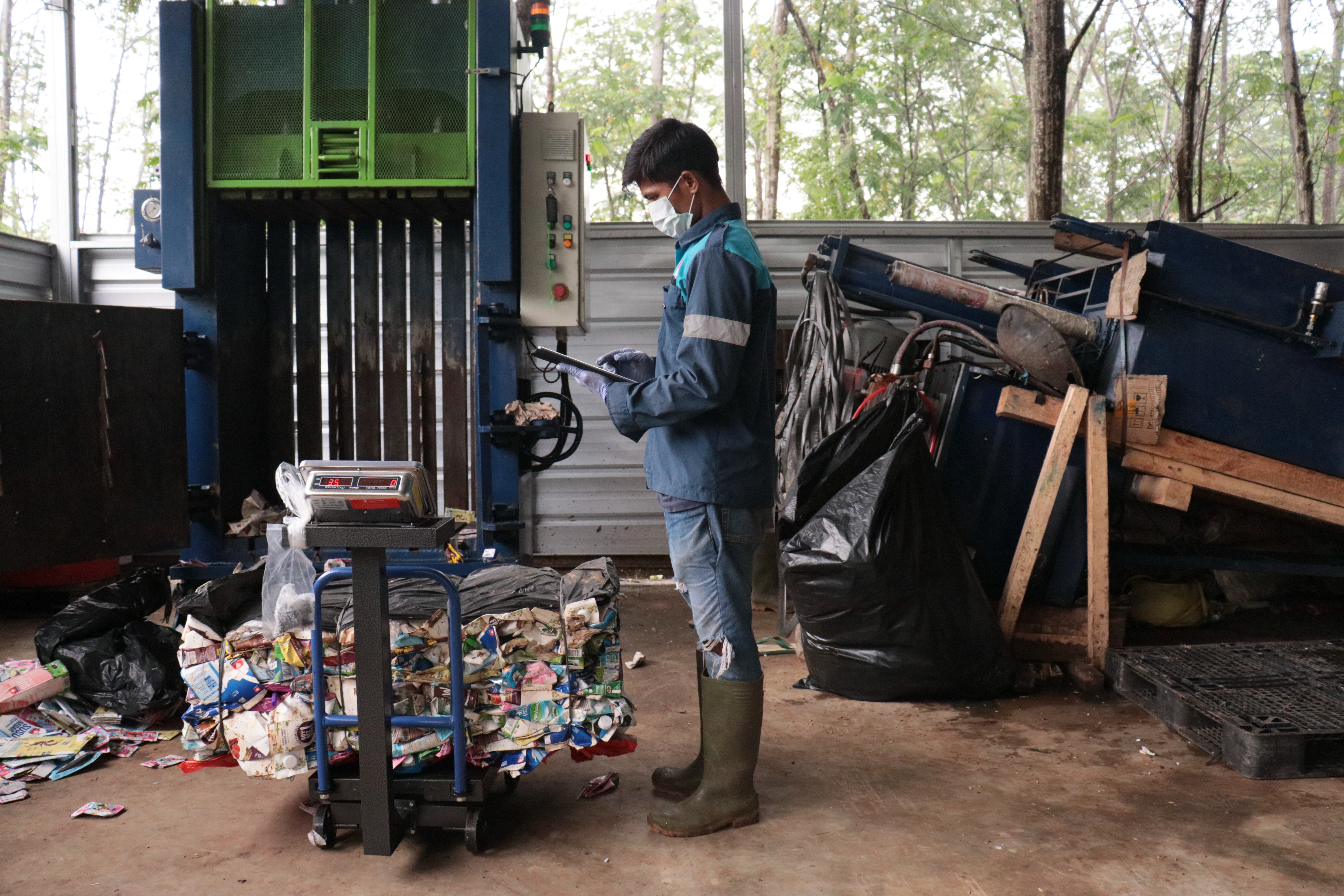Social Enterprise Stories
Starting in Tuban, East Java, the DBSF Grant is funding SukkhaCitta's research to bring regenerative cotton planting back to eastern Indonesia, to some of the poorest areas of the country already feeling the effects of climate change.
With help from DBSF, Sukkha Citta was able to identify the cotton varieties and farming and intercropping systems best suited to each region and produce the best results for local farmers. Finally, the DBSF grant enabled them to increase the capacity of their weaving community, where they partially process cotton and turn it into fabric and ultimately sustainable clothing.
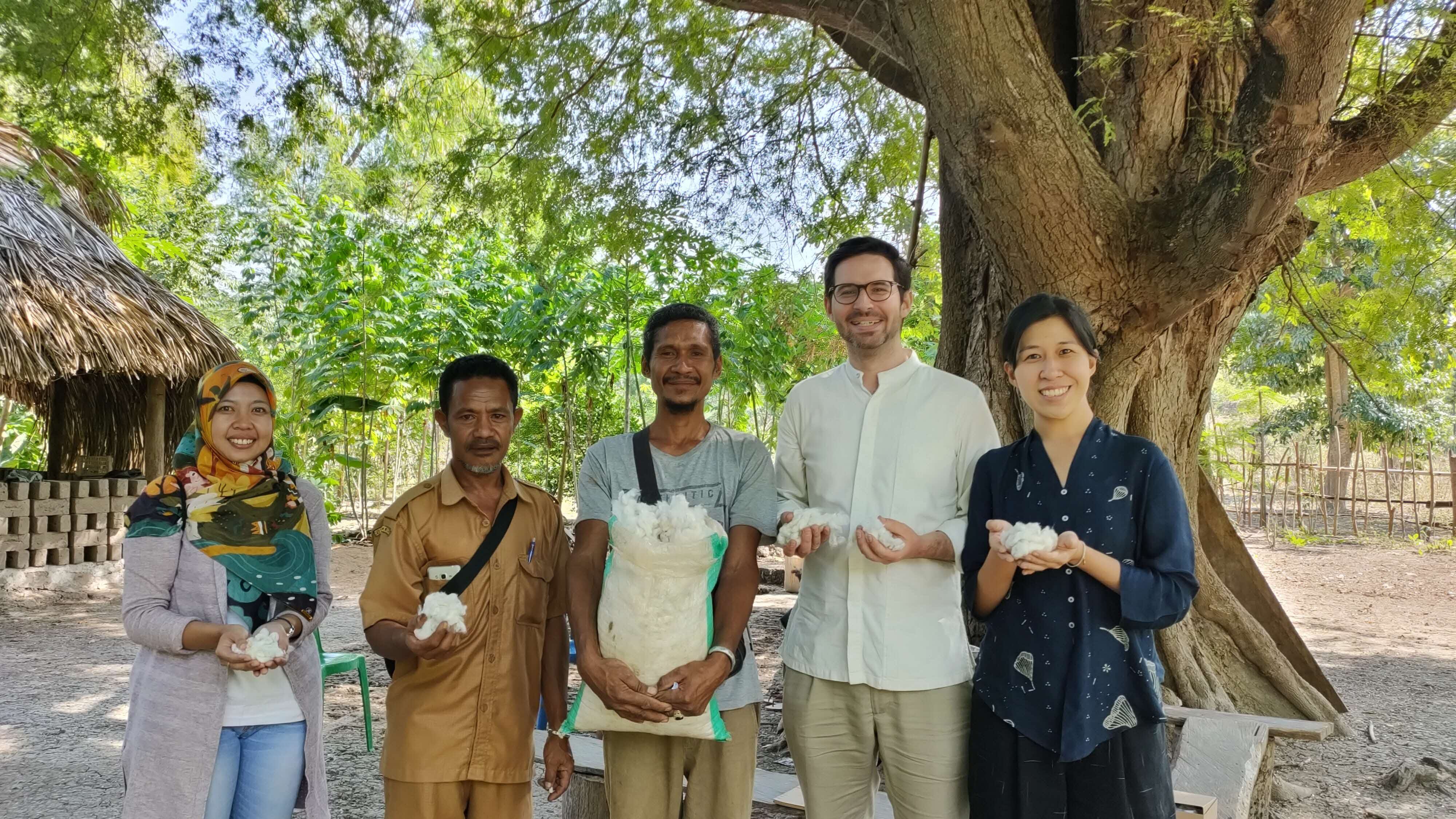
Together with DBSF, Sukkha Citta has created a space to experiment with combining regenerative cotton with other materials to meet market needs and ultimately, maintain long-term demand for cotton farmers so that the welfare of cotton farmers can be assured.
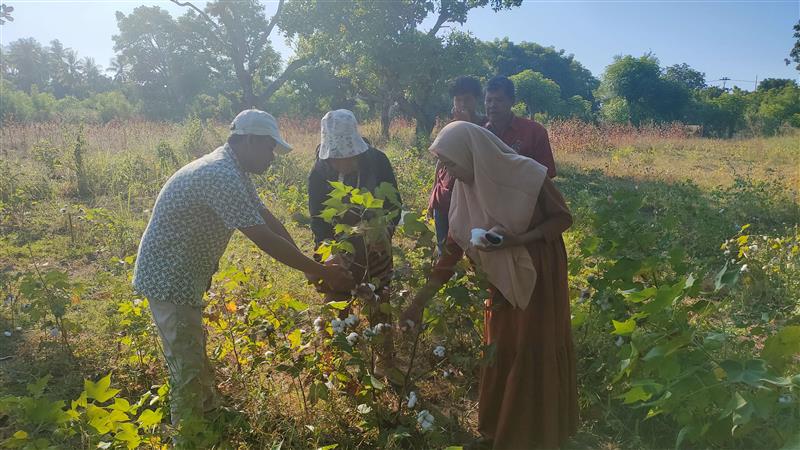
Meet Mama Yundri, one of the SukkhaCitta Mothers in West Timor who protect our land through their traditional knowledge. It is women like her that we have supported through the DBSF Grant program.
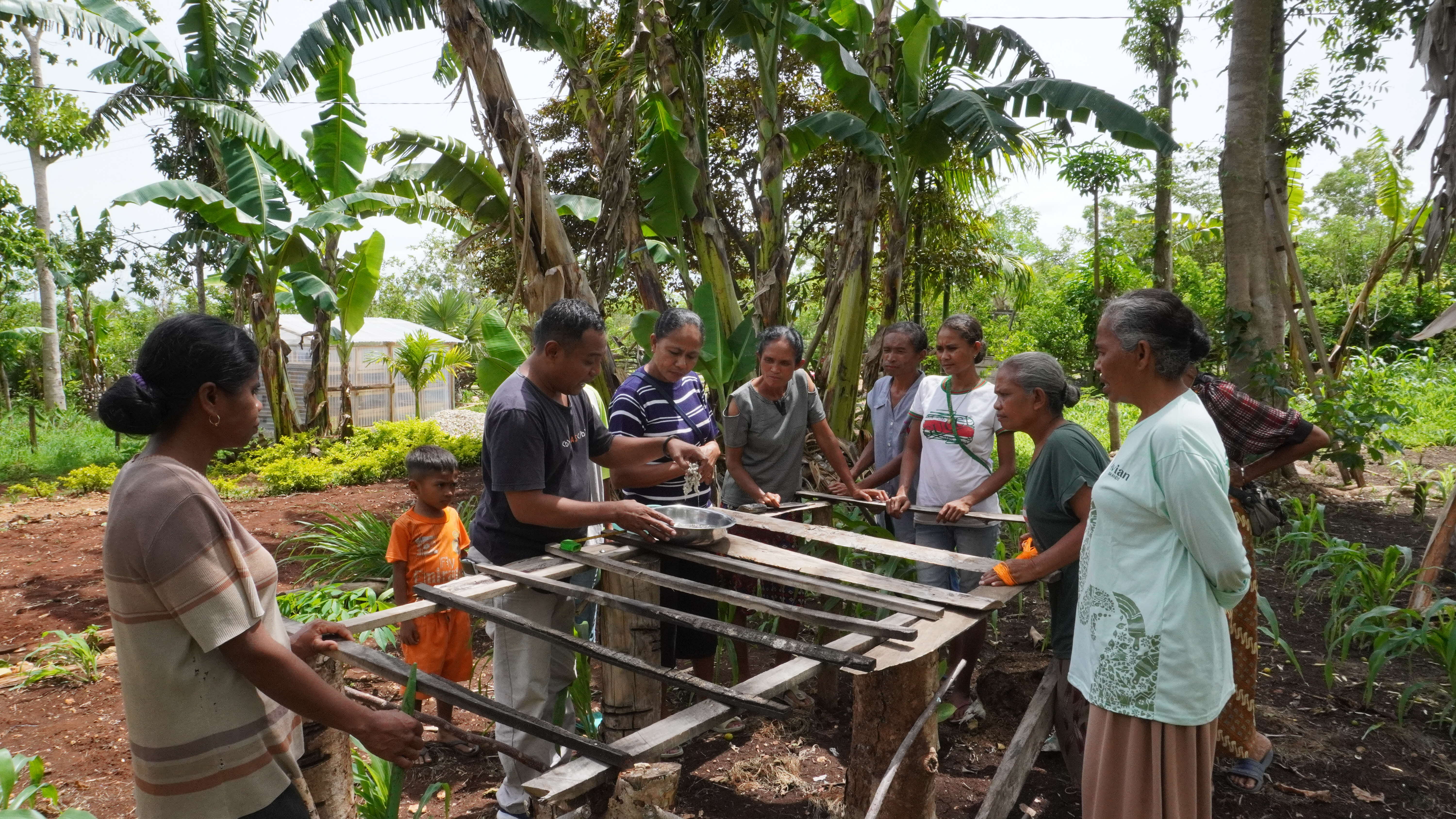
Du'Anyam won a grant from DBSF in 2017 to catalyze the development of a B2B online wholesale platform and to increase Duanyam's production capacity. This innovation has enabled Du'Anyam's Lontar woven products to be sold in 52 countries, including in global furniture retailers. Duanyam products are also the official merchandise for the 2023 Asian Games.
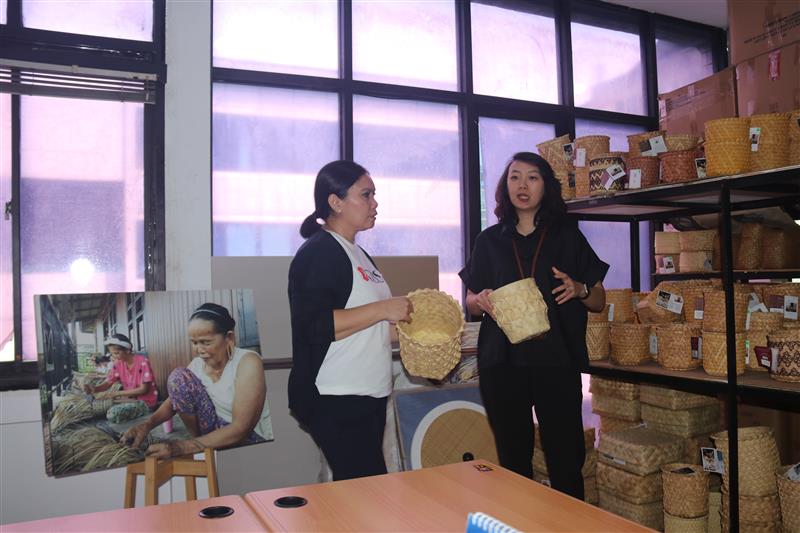
To date, Duanyam has empowered more than 1,400 women in 30 remote villages in East Nusa Tenggara, providing them with significant economic opportunities. Together with DBS Foundation, Duanyam also successfully conducted the first export from Flores, opening wider international market access for Lontar woven products.
In addition, more than 300 scholarships have been distributed to the children of the women involved in the venture, helping them to access better education.
Duanyam's achievements have also been widely recognized, winning the CECT Sustainability Award for best creative industry social enterprise in 2019 as well as the DBSF Honouree in 2024. These achievements show how Duanyam continues to grow as a leader in women's empowerment and cultural preservation through sustainable innovation.
“When I saw the news about the waste problem in Jakarta, I suddenly realized that this was the code, the signal (to act). I knew that inside me there was interest and energy to be part of the solution,” Mohamed Bijaksana Junerosano, Founder.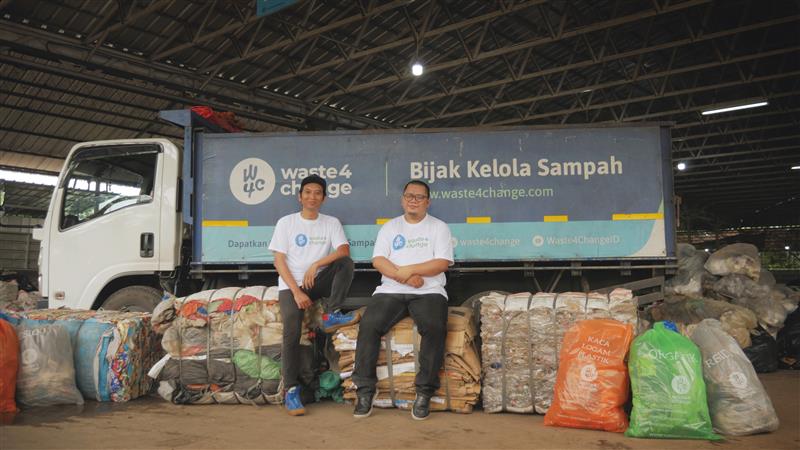
Waste4Change won a grant from the DBSF Grant Program in 2020 and was also awarded as one of the 10 DBSF Honourees in 2024. The support from the DBS Foundation Grant has catalyzed significant growth with the following achievements
- Growth of Recycling Partners: More than 10-fold increase, from 50 partners to 500 partners.
- Waste Reduction: Successfully reduced more than 10,000 tons of waste per year.
- Operation Expansion: From only 2 cities, now expanded to 10 cities in Indonesia.
- Training and Empowerment: Trained over 550,000 people on responsible waste management and increased the income of 918 waste pickers.
- Rapidly Increasing Income: Monthly revenue grew more than 10 times between 2021 and 2023.
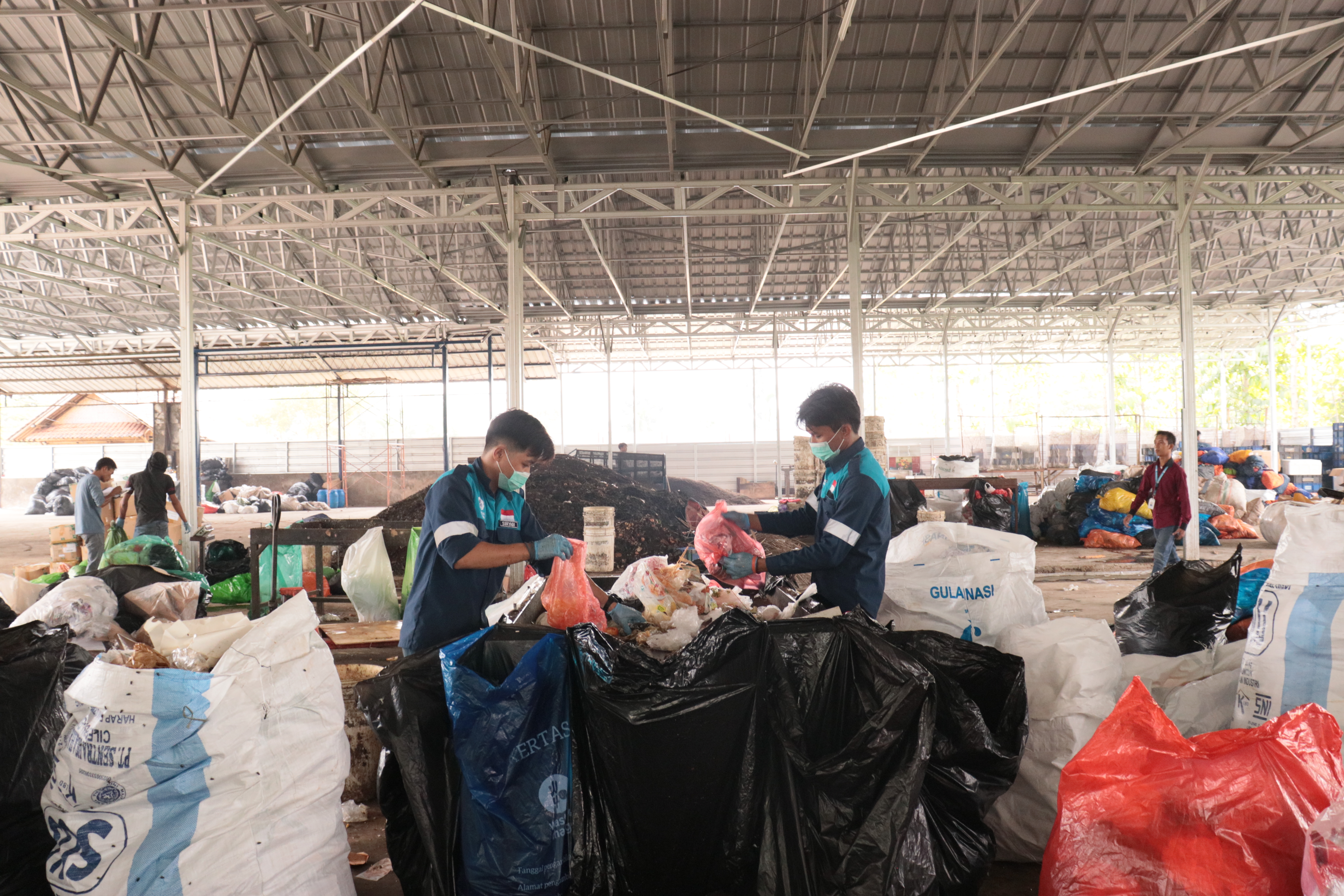
Waste4Change is also the waste management vendor for all DBS offices in Indonesia, demonstrating the tangible implementation of sustainability practices.
With an innovative and sustainable approach, Waste4Change continues to contribute to a greener future and support the well-being of vulnerable communities in Indonesia.
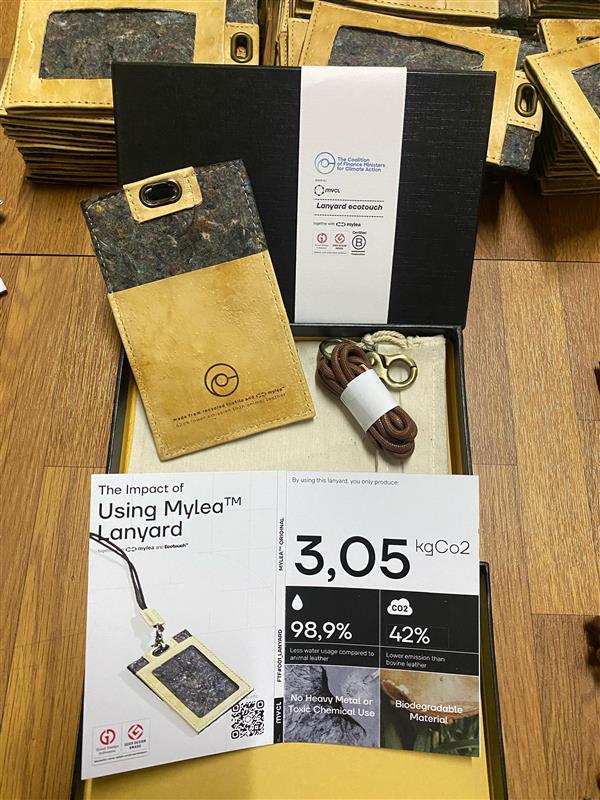
MYCL's strength lies in its focus on sustainability, using natural raw materials while reducing agricultural waste. This innovation has caught the attention of the global market, making MYCL a partner of various well-known brands, and successfully expanding into international markets, including Japan, Singapore, and Europe.
As a pioneer in impact business, MYCL has been awarded the DBS Foundation Grant Program in 2016 and 2018, which has been a key driver in its growth and success. In 2024, MYCL was also one of the finalists in The EarthShot Prize, a prestigious award for sustainable innovation.
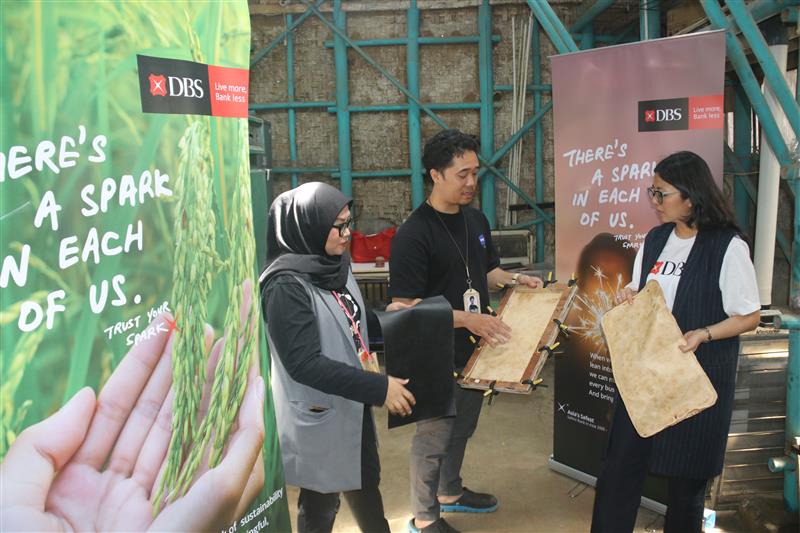
Through support from the DBS Foundation, MYCL has created 65 new green jobs and improved the lives of 195 farmers. MYCL has also achieved B-Corp certification, demonstrating its commitment to high standards in social responsibility, environment and performance. With a blend of cutting-edge technology and a commitment to sustainability, MYCL continues to deliver innovative solutions that support a greener future for the fashion and construction industries.
Programme Stories
She Can Programme’ Launches in West Kalimantan to Benefit 80,000 Vulnerable Women with Financial Resilience Skills
Programme partnership between The Asia Foundation and DBS Foundation in Indonesia
May 2025 - In West Kalimantan, lots of women from low income and marginalised family continue to face significant barriers in accessing and using financial services. A qualitative study conducted in March 2025 under the SHE CAN Program, which involved in-depth interviews with 40 women experiencing socioeconomic barriers—including micro-entrepreneurs, plantation workers, informal teachers, and female heads of households—found that only about two-thirds of respondents reported owning a bank account, while fewer had ever accessed loans from credit cooperatives, pawnshops, or banks, and only a few reported using e-wallets or conducting digital transactions. This gap between access and capability highlights the urgent need for targeted financial education and empowerment programs.
To address the challenge, The Asia Foundation (TAF), with support from the DBS Foundation, has launched the She Can program, running from 2024 to 2027. The initiative aims to reach 80,000 women across the region with financial literacy education, entrepreneurship training, and personalized mentoring. By equipping women with essential financial knowledge and skills, the program seeks to enable informed decision-making, foster economic independence, and build stronger, more resilient communities.
Bridging the Literacy Gap Through Women's Empowerment
Financial management within families—earning income and managing household expenses—involves women significantly. However, this involvement often comes with a double burden. Women are active income earners but still bear the share of domestic responsibilities, in the absence of an equitable household labor division. One of the findings from the scoping study is the perceived decline in physical violence against women. Despite the decline in gender-based violence, the lack of support structures continues to hinder their full economic participation.
Many women express a clear aspiration to improve their financial capabilities. Their goals include sending their children to college, building long-term assets such as homes and businesses, preparing for saving for a pension, and fulfilling religious obligations like pilgrimages and hajj. Yet, basic financial practices such as tracking income and expenses, budgeting, or maintaining records of debt and assets remain uncommon. The low habit of recording these results is a lack of awareness about whether their households operate in surplus or deficit, hindering long-term financial planning.
Thus, introducing core concepts like budgeting and financial planning becomes crucial, not only for cultivating saving habits and building financial vision, but also for laying the foundation for economic resilience. While interest in budgeting is strong, the most in-demand topics for financial education among women include increasing income through entrepreneurship and investments.
Localized Solutions and Sustainable Strategies
Findings from early assessments of the She Can program have been translated into a comprehensive curriculum framework. This includes refining criteria for identifying marginalized women, such as those older, victims of child marriage, not involved in micro or small enterprises, or living in remote areas, and designing strategies for long-term program sustainability. Additional participant feedback points to the importance of involving men at least during early socialization stages, promoting saving habits in varied forms, developing grassroots mentorship cadres, and clarifying the definition of "marginalized women."
While urban areas in West Kalimantan benefit from better access to banks and credit unions, rural and peri-urban regions still face substantial challenges. In these areas, traditional practices like ijon (the advanced selling of crops) and physical cash savings (e.g., using piggy banks) are still widespread but not effectively leveraged for long-term financial growth. Furthermore, the adoption of digital financial services remains low, hindered not only by infrastructure gaps but also by negative experiences, poor perceptions, and limited community support.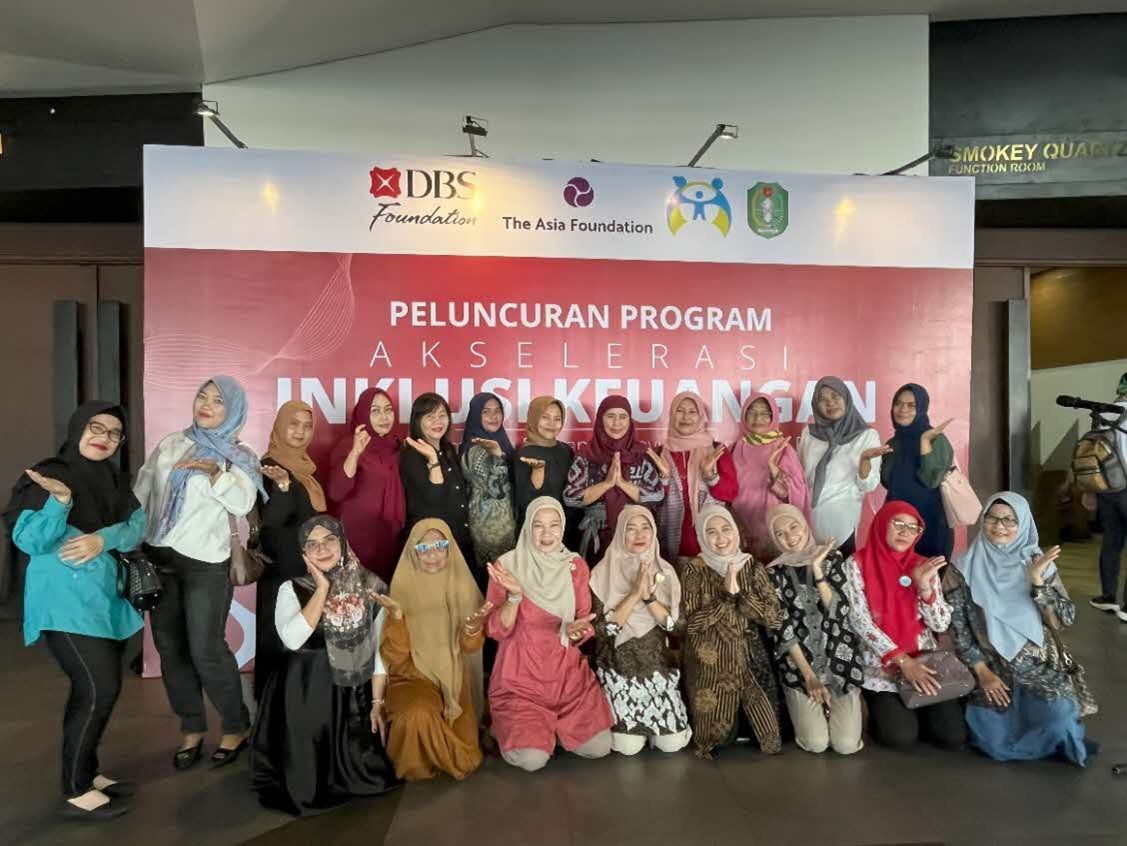
Collective Commitment to Change
At the program's launch in Pontianak on April 15, 2025, Hana Satriyo, Country Representative of The Asia Foundation Indonesia, emphasized the broader vision: "The She Can program is part of our commitment to empowering women through skills and leadership, creating real change in their lives and communities."
Mona Monika, Head of Group Strategic Marketing & Communications Bank DBS Foundation, emphasized that the initiative aligns with DBSF Indonesia's vision to create a positive impact beyond banking by supporting the development of more inclusive, empowered, and resilient communities. "We believe that women's empowerment is key to creating sustainable change. As a purpose-driven bank, we are committed to accelerating financial inclusion by expanding women's access to education, training, and economic opportunities," she stated.
Amurwani, Deputy for Gender Equality at the Ministry of Women's Empowerment and Child Protection, reinforced the importance of this effort: "Better financial literacy will help women compete, improve their well-being, and access equal opportunities."
Echoing this, the West Kalimantan Provincial Government expressed strong support for the program, recognizing its alignment with local priorities for promoting gender equality and integrating women's empowerment into sustainable development goals.
Empowering Women to Build Resilient Communities
TAF and the DBS Foundation are committed to supporting the development of inclusive, empowered, and resilient communities. The She Can program will include a series of integrated trainings, mentoring sessions, and financial literacy education to help improve financial knowledge and skills among vulnerable women in West Kalimantan.
She Can represents a vital step toward dismantling systemic barriers and enabling women to take charge of their financial futures. By marrying practical financial education with localized mentoring and community engagement, it not only addresses gaps in financial literacy but also lays the groundwork for inclusive and lasting development across West Kalimantanan.
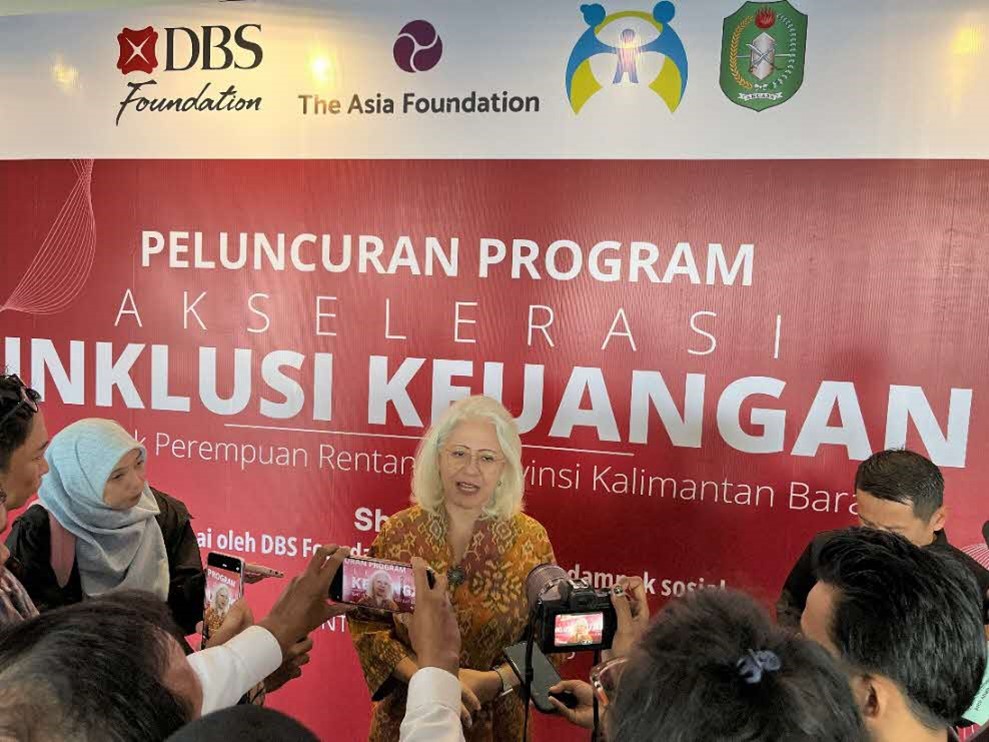
DBS Foundation x Nafas
DBS Indonesia
Find a branch near you
Awards
Best Bank in the World 2020, Global Finance
World's Best Bank 2019, Euromoney
Global Bank of the Year 2018, The Banker
Best Bank in the World 2018, Global Finance

